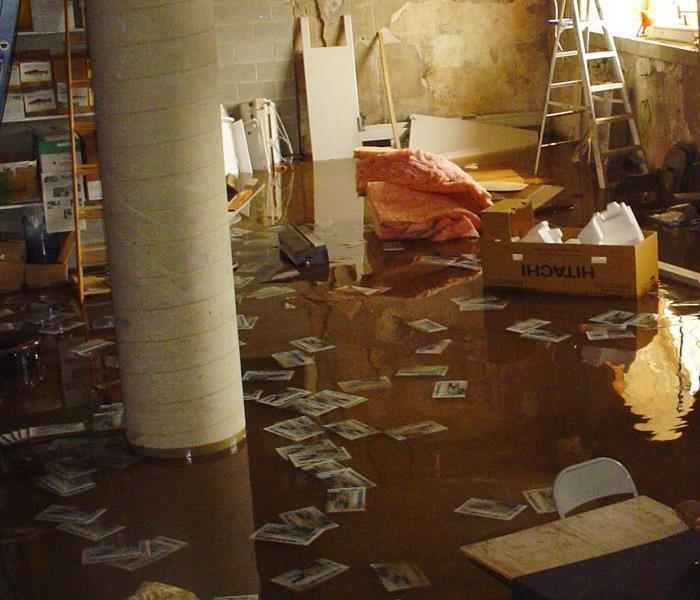Understanding Water Types
4/20/2016 (Permalink)
When your home or business suffers a water damage, understanding what type of water you are dealing with is critical to ensuring proper cleanup. There are three types of water. Clean water is water from a broken pipe, or other water source; rainwater is also considered clean. The term gray water is used to classify slightly contaminated water. Clean water becomes gray water when it is left untreated allowing bacteria and other contaminants to begin growing, making the water hazardous. Black water is highly contaminated and filled with fungi, bacteria, chemicals and more. Black water is typically caused by sewage damage, flooding or any type of natural disaster. Black water should always be handled by trained professionals.
Consider taking the following precautions to help minimize damage or prevent further damage while waiting for help to arrive:
Damage from Clean Water
- Shut off the water source if possible or contact a qualified professional to do so.
- Turn off circuit breakers for wet areas of the building if access to the power distribution panel is safe from potential electrical shock.
- Remove as much excess water as possible by mopping or blotting. Wipe excess water from wood furniture after removing lamps and table top items.
- Remove and prop up wet upholstery cushions to allow more even drying.
- Move any paintings, art objects, computers, documents and other valuable items that may be sensitive to moisture to a safe place.
- Do not leave books, newspapers, magazines or other colored items on wet carpets or floors as they may cause staining.
- Do not use your household vacuum cleaner to remove water as there is a potential for electrical shock or causing damage to the vacuum cleaner.
- Do not turn on ceiling fixtures if ceiling is wet; do not enter rooms where ceilings are sagging from retained water.
Damage from Contaminated Water
- Avoid all contact with sewage and items contaminated by sewage. Wash your hands thoroughly if you come in contact with contaminated items.
- Do not walk through contaminated areas, as you could spread damage to uncontaminated areas.
- Do not turn on the HVAC system if there is a possibility of spreading contaminated air.
- Do not use household fans to dry the structure; air flow could spread contaminants.
- Discard any food and/or products for personal hygiene and cleanliness if exposed to the contaminated areas.
When you have a water damage, don't leave your property to chance. Call SERVPRO of East Central Morris County at 973-887-9100





 24/7 Emergency Service
24/7 Emergency Service
